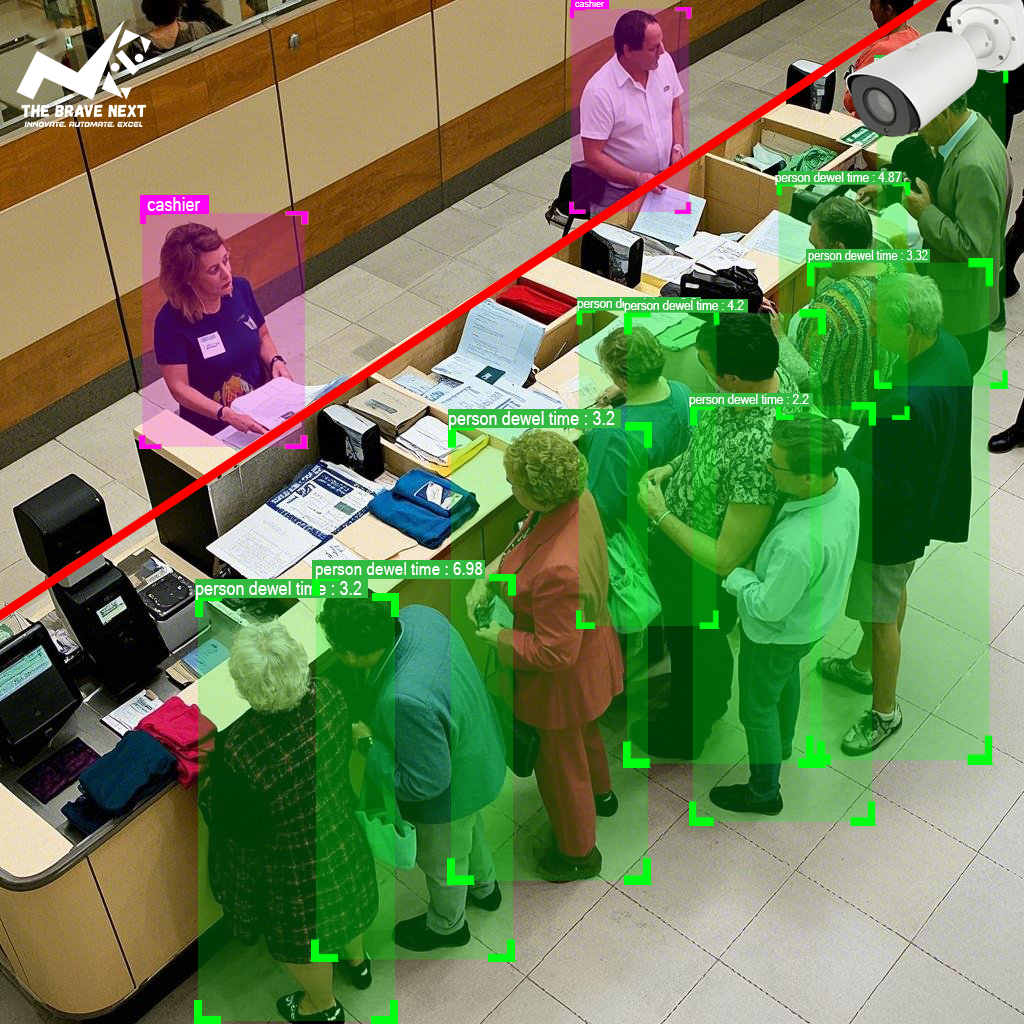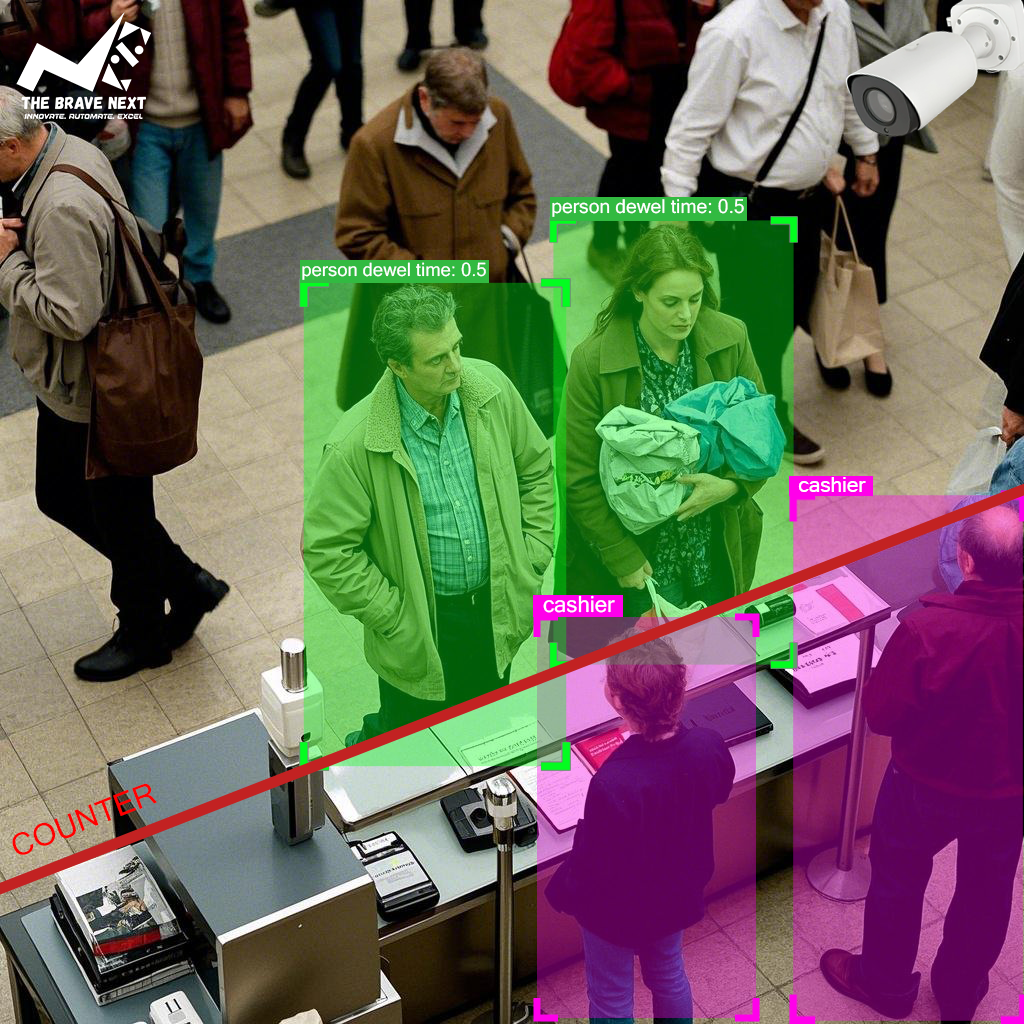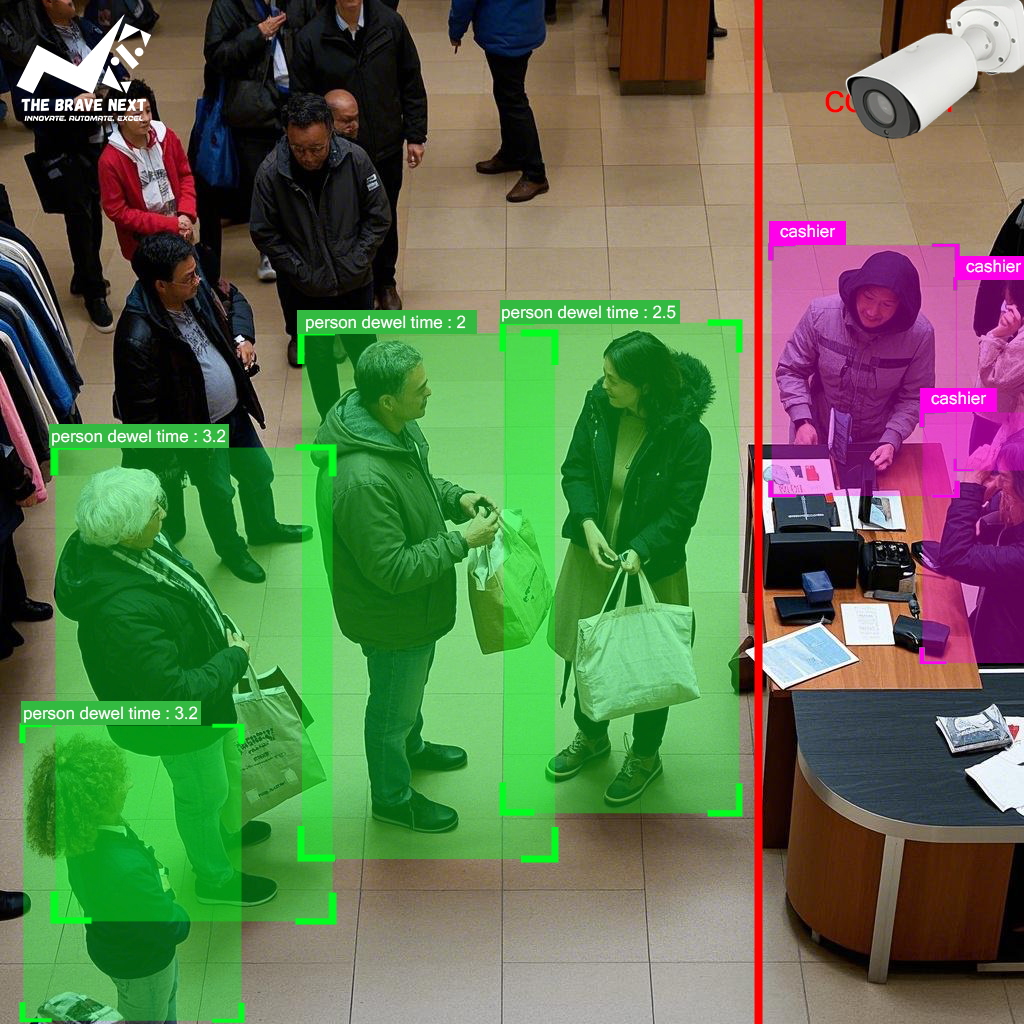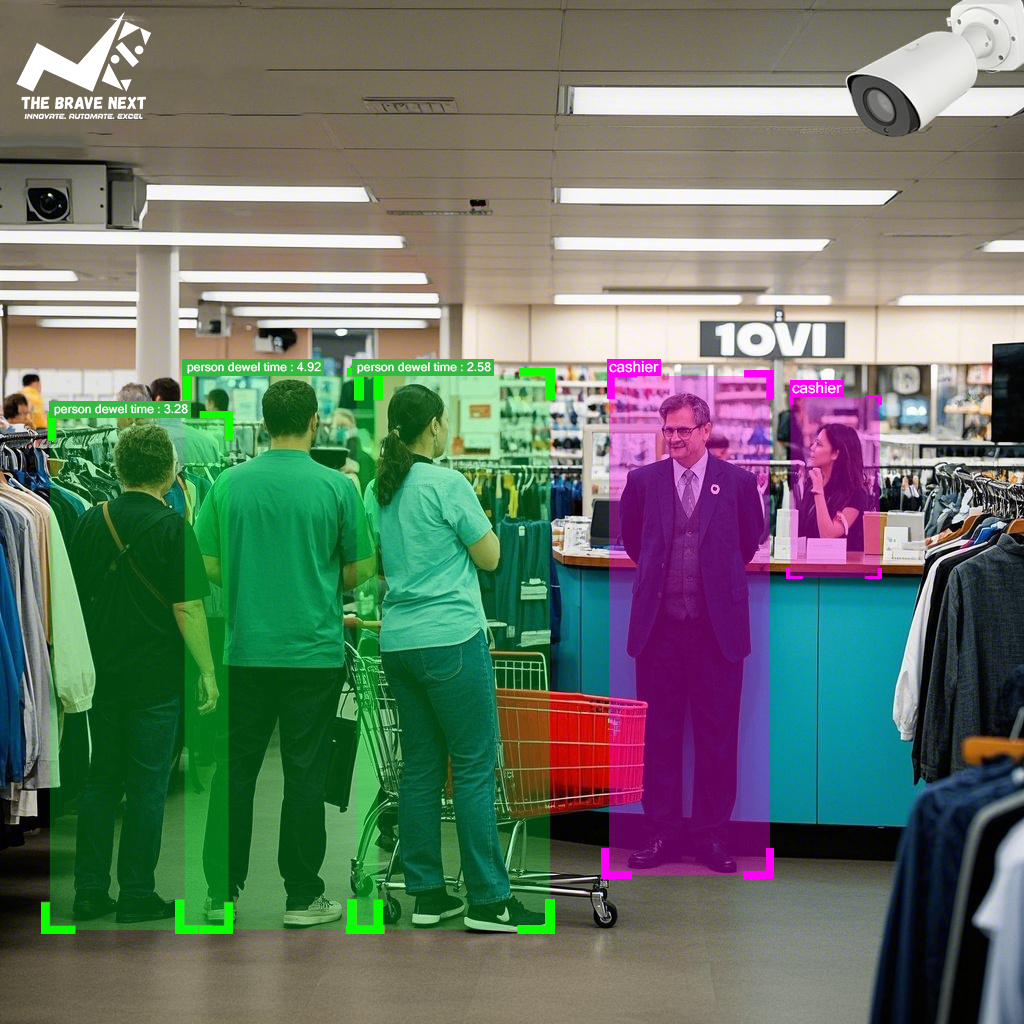



In the rapidly evolving world of retail, technology continues to play a crucial role in shaping how businesses engage with customers and optimize operations. One of the most transformative technologies currently revolutionizing the retail experience is AI-powered surveillance. From improving security to optimizing store layouts and better understanding customer behavior, AI is becoming an essential tool for modern malls. In this blog, we’ll explore how AI-powered surveillance systems are transforming mall management by optimizing foot traffic, demographics, theft prevention, receptionist presence, and visitor analytics.
AI-powered surveillance can help malls track and analyze foot traffic patterns, providing valuable insights into customer behavior. By monitoring the movement of visitors throughout the mall, AI systems can identify the busiest areas, peak hours, and underutilized spaces. These insights allow mall managers to
1) Optimize store placements, ensuring high-traffic stores are located in prime areas to attract more customers.
2) Adjust lighting, signage, and displays in real time to guide foot traffic more effectively.
3) Plan for future expansions or renovations based on the data gathered, ensuring the layout is in line with customer preferences.
With a better understanding of where and when foot traffic is highest, malls can create a more efficient, pleasant shopping experience for visitors, ultimately boosting sales and customer satisfaction.
AI-powered surveillance also enables malls to gather demographic data about visitors, helping mall owners and managers better understand their customer base. Through facial recognition technology and advanced analytics, malls can track the age, gender, and even the shopping preferences of visitors. This data can be used to:
1) Customize marketing campaigns based on demographic trends.
2) Personalize customer interactions by offering relevant promotions and discounts.
3) Tailor store offerings to match the preferences of the local demographic.
By leveraging AI to understand the demographics of their visitors, malls can create a more tailored and engaging shopping experience, which drives loyalty and increases overall revenue.
Security is a top concern for any mall, and AI surveillance systems offer a sophisticated approach to prevent theft and other criminal activities. With advanced AI-powered video analytics, surveillance cameras can detect unusual behaviors, such as shoplifting, loitering, or unauthorized access to restricted areas. These systems can:
1) Identify suspicious movements or behaviors in real-time, alerting security personnel instantly.
2) Track individuals throughout the mall, enabling a more effective response to incidents.
3) Analyze past incidents to predict future patterns and prevent theft before it occurs.
By integrating AI surveillance, malls can enhance their security infrastructure, reduce shrinkage, and provide a safer environment for shoppers and staff alike.
In a mall, the receptionist is often the first point of contact for visitors, providing assistance, directions, and information. AI-powered systems can complement the work of receptionists by providing real-time support and assistance to visitors. For example, AI-driven kiosks and virtual assistants can:
1) Help visitors find stores, restaurants, and amenities quickly.
2) Provide personalized shopping recommendations based on the visitor's profile or preferences.
3) Offer multilingual support to cater to a diverse customer base.
AI technology can ensure that visitors always feel welcome, providing efficient customer service even during peak times, and allowing receptionists to focus on more complex tasks.


AI-powered surveillance also enables malls to gather detailed analytics about visitor behavior. By monitoring how visitors interact with the mall environment, including their time spent in various stores, the path they take, and the frequency of their visits, malls can:
1) Understand the effectiveness of marketing campaigns, promotions, and events.
2) Identify trends and patterns in consumer behavior, allowing for better decision-making.
3) Assess the impact of store layout and product placement on visitor engagement.
This data is invaluable for optimizing operations and ensuring that the mall is always aligned with visitor expectations and preferences.
AI-powered surveillance doesn't just gather demographic data—it can also track individual preferences, allowing malls to offer a more personalized shopping experience. By analyzing behavior patterns, such as the stores a visitor frequents, the types of products they engage with, and their shopping habits, AI can help deliver highly tailored experiences. This can include:
Sending personalized offers or discounts to customers based on their preferences.
Suggesting new stores, products, or services based on the visitor’s browsing history within the mall.
AI systems can assist in guiding customers to products they may be interested in, similar to how online shopping platforms provide personalized recommendations.
By offering a personalized experience, malls can not only improve customer satisfaction but also increase the likelihood of repeat visits and higher sales conversions.
In addition to enhancing customer experience and security, AI-powered surveillance can also play a pivotal role in making mall operations more energy-efficient. Through the analysis of foot traffic and occupancy patterns, AI systems can adjust environmental factors in real time, helping to reduce energy waste. These systems can:
Automatically adjust lighting based on foot traffic, dimming lights in underutilized areas and brightening high-traffic zones.
Regulate heating, ventilation, and air conditioning to ensure that energy is only used in areas where it’s needed.
Track store activity to reduce energy consumption in stores that are closed or experiencing low traffic.
These efficiency gains not only help reduce costs but also align with sustainability goals, making the mall more eco-friendly and attractive to environmentally-conscious consumers.
AI-powered surveillance detects suspicious behavior in real-time, such as shoplifting or unauthorized access, and alerts security. It tracks movements throughout the mall to prevent incidents before they happen.
AI collects demographic information and shopping behavior, such as store visits and time spent in areas, helping to personalize experiences and optimize mall operations.
AI adjusts lighting, heating, and cooling based on foot traffic and occupancy, reducing energy waste and lowering operational costs.
Please send your query or requirements in detail via whatsapp, and we will respond shortly.
Thank you!